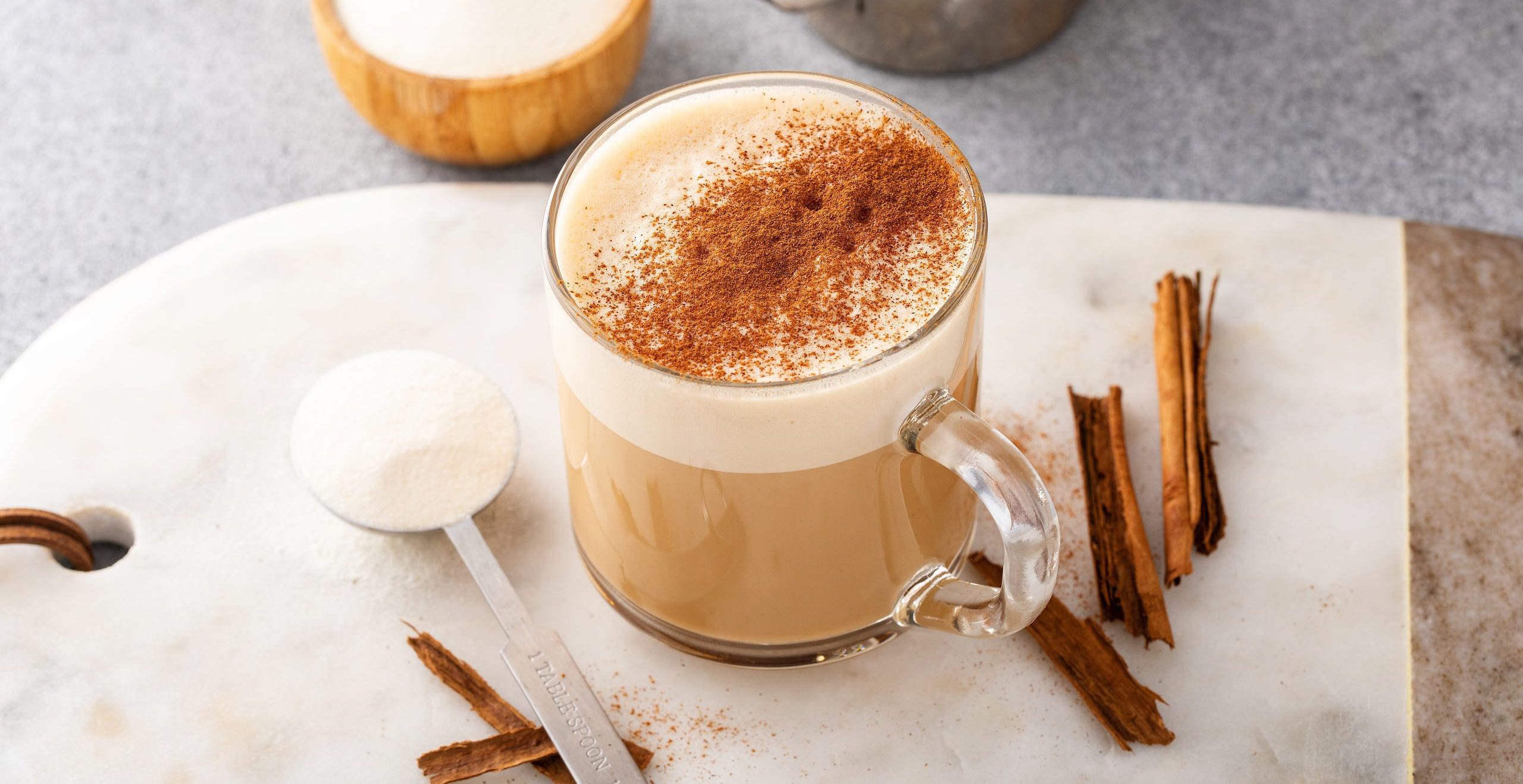Adding hydrolyzed collagen to your coffee
Various trends have accompanied the rising popularity of collagen supplements, including adding hydrolyzed collagen to coffee. Many see this as an ideal way to incorporate more collagen into their diets. Due to its rather neutral taste, the unflavored version can easily be added to foods and beverages without significantly affecting their flavor. Still, you may wonder whether adding collagen to your coffee or other hot beverages could negatively affect these proteins.
When adding collagen to coffee, the main concern may be the effect of higher temperatures on the quality of the supplement. Generally, when exposed to high temperatures or acidic and alkaline solutions, proteins become denatured, changing their structure slightly. This is important because collagen peptides are usually made by exposing animal hides to an acidic or alkaline solution to release the collagen. Then, the hides are cooked in water at temperatures up to 190ºF (88ºC) to further extract collagen peptides (8Trusted Source). This means that collagen supplements on the market are in a denatured or slightly predigested form, which improves their absorption in the digestive tract.
Still, if collagen proteins are exposed to even higher temperatures, a process called degradation can occur, further breaking down the protein. At this point, the protein may not function the same, rendering the supplement useless.
One study exposing collagen proteins to temperatures of 302–788ºF (150–420ºC) observed that their initial degradation occurred at around 302ºF (150ºC) (9Trusted Source). That said, coffee is typically brewed at 195–205ºF (90–96ºC) — a much lower temperature range.
Thus, as long as your coffee is below 302ºF (150ºC) when you add your collagen supplement, the quality of the powder is unlikely to be affected (10Trusted Source).
How to use it
Simply follow the steps below to add collagen to your coffee.
- Brew your coffee in the usual fashion.
- Measure a serving of collagen protein, usually about 20 grams.
- Gently stir the powder into your coffee until it’s fully dissolved.
Other foods and drinks to add it to
While it’s most common to consume collagen peptides with coffee, it can also be added to other hot or cold foods and beverages, including:
- Smoothies
- Tea
- Juices
- Oats
- Soups
- Mashed potatoes
- Jello
When adding collagen to other hot foods and beverages, it’s best to add them toward the end of cooking or preparation — when temperatures are slightly reduced — to avoid degradation. If adding collagen to cold foods and beverages, solubility may become an issue, and additional mixing may be required. Considering that most collagen supplements are tasteless and odorless, adding them to foods and beverages should not affect their flavor.


